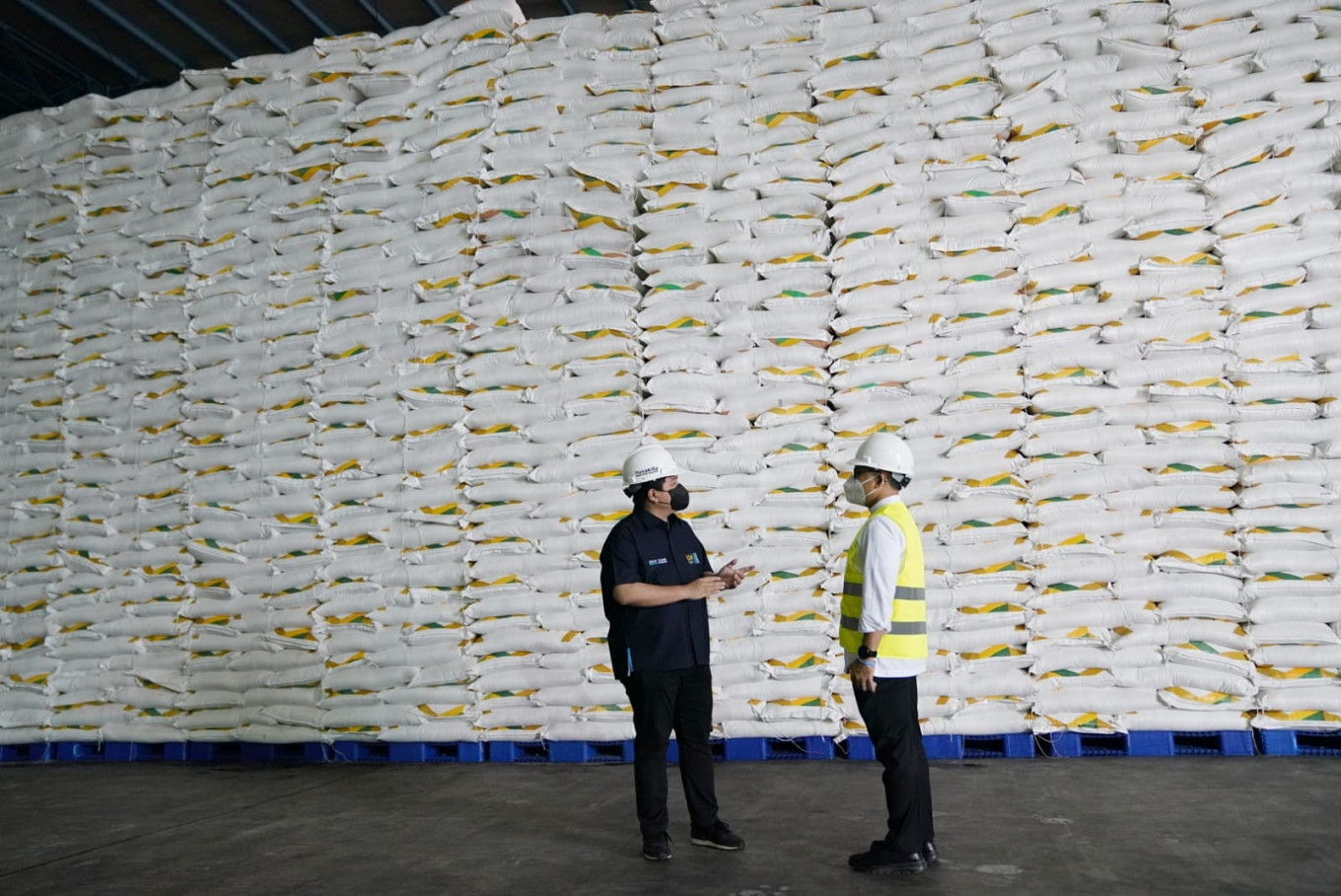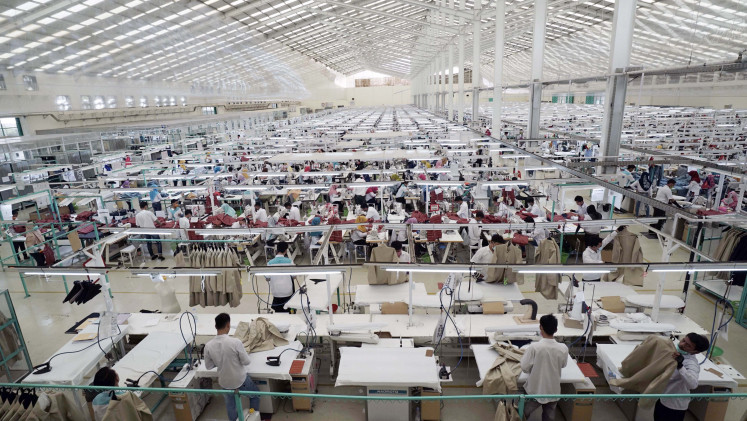State-owned holding firm SugarCo formed to curb sugar imports
SugarCo is the name given to a newly formed state-owned holding company that focuses on the sugar industry, aiming to reduce the country’s dependency on sugar imports by improving production.
Change text size
Gift Premium Articles
to Anyone

S
ugarCo is the name given to a newly formed state-owned sugar processing holding company, aimed at raising domestic production to minimize household sugar imports over the long term.
National plantation holding firm PT Perkebunan Nusantara III (PTPN III) established SugarCo, officially named PT Sinergi Gula Nusantara, on Aug. 17 by placing 35 sugar factories – previously owned by seven PTPN III subsidiaries – under the new company.
The government appointed PTPN III as the holding entity for 13 PTPN sister companies in 2014. The companies, which claimed combined assets of Rp 69.3 trillion (US$4.86 billion) during their merger, vary in product offering and operating area.
Read also: PTPN III named as holding firm for state plantations
“The President supports the forming of SugarCo. The new company would increase production, improve farmers’ welfare and stabilize [domestic] sugar prices,” PTPN III president director Muhammad Abdul Gani told lawmakers during a hearing with the House of Representatives on Monday.
He added that SugarCo would be responsible for processing all of PTPN III sugarcane.
Indonesia used to be the world’s second-biggest sugar exporter after Cuba back in the 1930s, when the Southeast Asian country was under colonial rule, but has become one of the world’s top five sugar importers in the past decade.
The sugar trade balance upended as higher domestic consumption met falling sugar production each year. PTPN data show that domestic production reached 2.13 million tons last year, far less than domestic consumption at 6.9 million tons, which is split roughly 50/50 between household and industrial consumption.
In covering the deficit, Indonesia saw a threefold increase in sugar imports over the last two decades, with the latest figure being 5.53 million tons in 2020, according to Statistics Indonesia (BPS). The government seeks to undo the deficit by building new sugar factories and raising domestic sugarcane production.
Read also: Govt seeks to boost production, attract investment to control sugar price in 2021
PTPN III aims to increase SugarCo’s sugar production capacity from 0.8 million tons this year to 1.8 million tons in 2024, and 2.6 million tons in 2030 in reducing the trade deficit.
SugarCo expects the new factories to help Indonesia attain self-sufficiency for household sugar, but acknowledged that attaining total sugar self-sufficiency was “too hard”, referring to the higher requirements for producing industrial sugar.
In its presentation material at the hearing, PTPN III showed plans to sell a 49 percent stake in SugarCo to private investors, the proceeds from which would be used to expand its sugar business, while still maintaining a controlling stake in SugarCo.
PTPN III plans to build five new factories by 2024, which would cost an estimated Rp 20 trillion. Most of its current factories were 150 to 200 years old with small capacities, resulting in massive inefficiencies.
State-owned PTPN also had plans to improve farmers’ livelihoods by providing them with free and higher quality sugarcane saplings, said Gani.
In the 1930s, continued Gani, each sugarcane farmers’ productivity was around 15 tons per hectare per year, but output has fallen to 5 tons per ha at the moment, due to a drop in sugarcane profitability. The average sugarcane farmer’s net income fell from more than Rp 63.2 million per ha in the 1930s to Rp 3.7 million per ha, adjusted to today’s prices.
“We aim for farmers' net income to be more than Rp 11 million per ha, which is the average for rice farmers, so that more farmers will plant sugarcane again,” he said.
The company plans to raise each sugarcane farmer’s net income to around Rp 21.2 million per ha in 2024, hoping it would help increase productivity to at least 10 tons per ha by then.
The forming of SugarCo was also part of PTPN III’s restructuring strategy. As of January this year, the plantation holding company owed Rp 45.3 trillion in debt to 50 creditors, around 80 percent of which has been restructured.
Aside from its sugar business, PTPN III also plans to expand its palm oil, tea and coffee businesses, while reducing its rubber plantation portfolio.
Indonesian Political Economy Association (AEPI) agriculture expert Khudori said the consolidation was in line with the government’s plan since the 2000s to revitalize state-owned sugar factories, enabling them to better compete with the private sector.
However, exempting sugar factories owned by state-owned PT Rajawali Nusantara Indonesia (RNI) from SugarCo would make the consolidation “rather incomplete”, limiting the impact of the restructuring plan.
“That’s odd. PT RNI also has a lot of inefficient sugar factories. Why not include them?” he told The Jakarta Post on Tuesday.
The Agriculture Ministry’s director for seasonal crops and spices Hendratmojo Bagus Hudoro said SugarCo was expected to help spur sugarcane farming and revitalize the country’s aging sugar factories.
State-owned companies controlled around 47.56 percent of total sugarcane plantation while privately owned companies controlled the remaining 52.44 percent.
“Increasing plantation area, productivity and yield, and improving efficiency in the state-owned sugar processing industry will accelerate the realization of self-sufficiency in consumer sugar,” he told the Post on Tuesday.
The ministry also pledged to ease sugarcane farmers’ access to microcredit (KUR), superior saplings and training.









